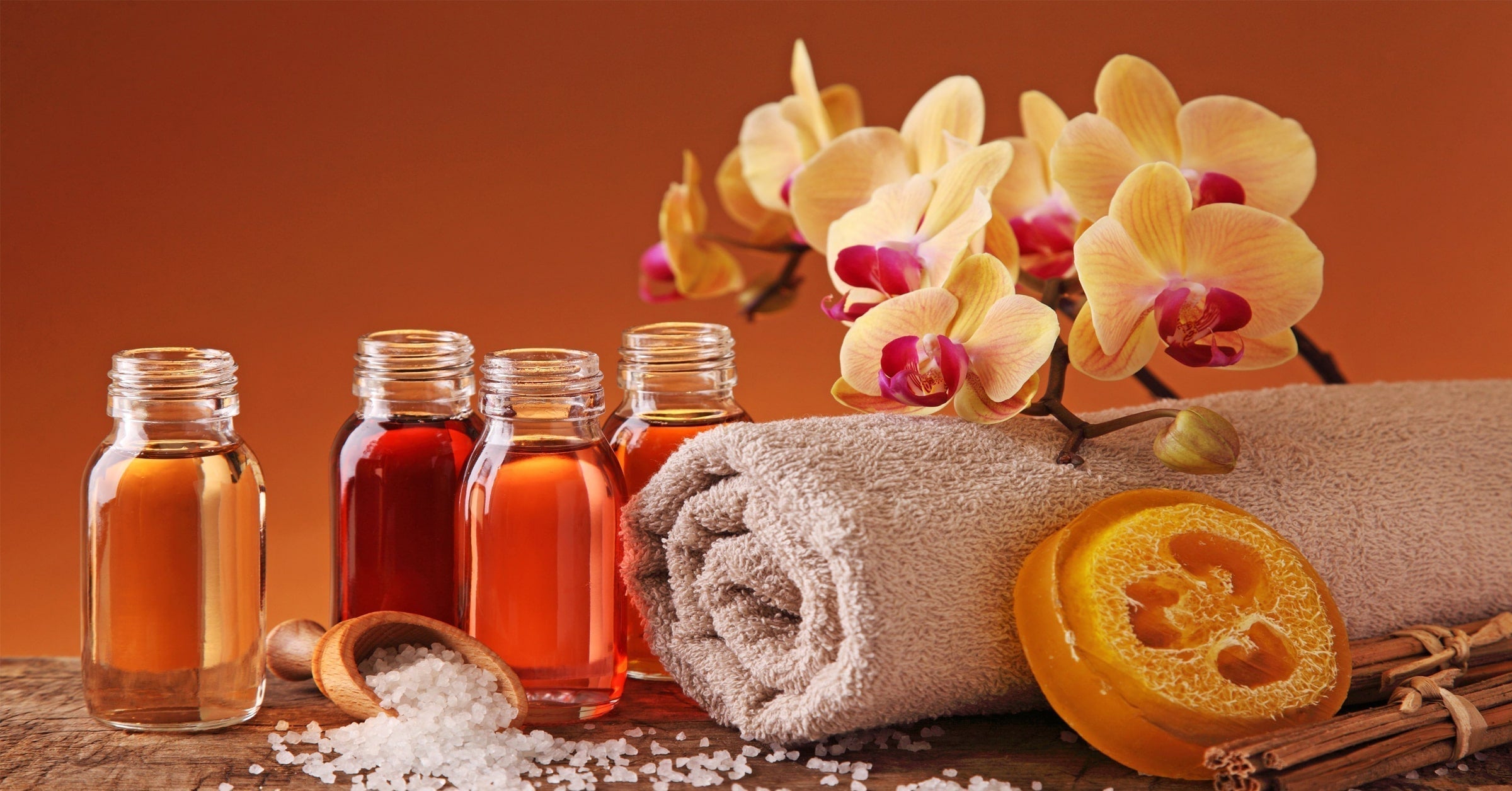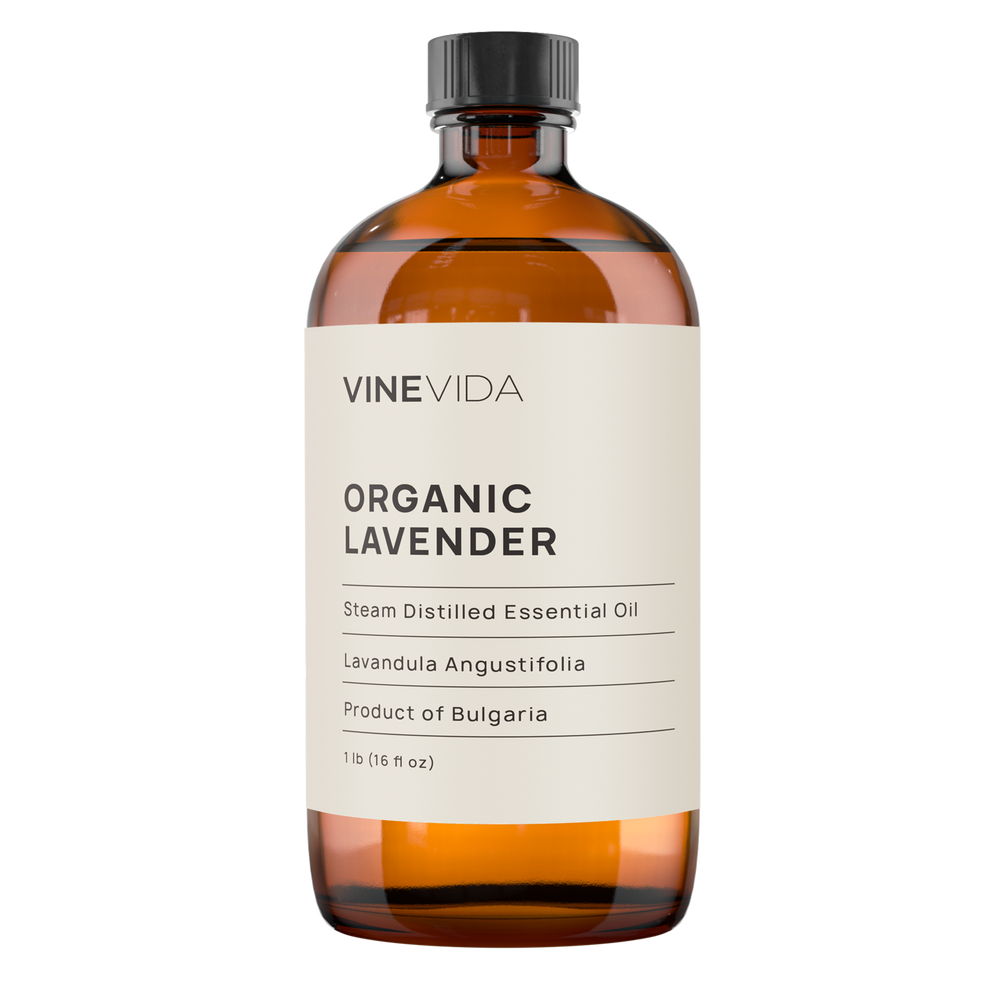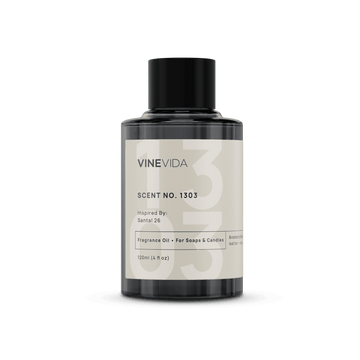Statistics on the World Health Organization (WHO) website indicate that over 264 million people around the world suffer from depression. Depression is a disorder that differs from feelings of depression that arise from everyday challenges and circumstances.
When a person is suffering from chronic or long-lasting depression can begin to affect their work or school, as well as their relationships and personal life. While it is important to note that essential oils cannot cure depression, they can sometimes help lift mood and manage some symptoms.
Our list of the best essential oils for depression also includes oils that can help relieve feelings of stress and anxiety, as these can be common in those suffering.
The Basics of Depression
Depression is classically associated with low mood but can also be associated with the inability to concentrate, a lack of interest in self-care, poor appetite, and insomnia. People with depression often isolate themselves from their friends and find it hard to go to work.
Depression Signs and Symptoms
As well as sadness, depression can make you feel hopeless about life. It often manifests as low self-esteem, and it becomes difficult to find pleasure in things that previously brought you joy.
Often, people with depression find they are more tearful or can also feel more anxious.
Sleep ceases to be helpful. Depression often makes you tired all the time, but paradoxically also disturbs sleep. Sex drive often suffers, and it is not unusual for aches and pains to get worse.
It might be that depression is some kind of adaptive reaction to adverse life experiences. While most people experience stress or anxiety or even feel a little down, a Low mood usually improves after a short period.
Symptoms of depression tend to be lingering and can range from mild to severe. At its mildest, you may constantly feel you can’t shake a dark cloud, while severe depression can make you feel as if life is no longer worth living or suicidal.
Common Types of Depression
1. Major Depressive Disorder
This type of depression can range from mild (where the individual can still function) to severe. Common symptoms include anxiety, feelings of low self-worth, trouble sleeping and eating, and poor concentration.
2. Bipolar Affective Disorder
Individuals with bipolar disorder can alternate between manic and depressive states while acting normally.
3. Persistent Depressive Disorder
This is when an individual suffers from feelings of depression for more time than not over two years. They may have brief moments where they feel better, but these will last for less than two months.
4. Postpartum Depression
This type of depression can onset before the baby is born. While many new moms suffer from mood swings after the initial birthing process, postpartum depression is much more severe and longer-lasting. If severe enough, this disorder can even lead to psychosis.
5. Premenstrual Dysphoric Disorder (PMDD)
In PMDD, the symptoms of PMS related to mood become much more intense. These can include drastic mood swings, sadness or hopelessness, severe stress, and the inability to concentrate.
What is the Impact of Depression on the Brain?
Depression can affect how we think, act, feel, and act; however, experts aren’t sure what causes these changes. It is suspected that genetics, stress, and inflammation might play a role.
Research suggests that depression may cause the brain to shrink as it loses cells of grey matter. Remarkably, the number of grey matter cells in the hippocampus, and the prefrontal cortex seems to reduce. (Arnone, 2013)
The hippocampus is affected by stress hormones and is involved in memory. The Prefrontal cortex is involved in planning and problem-solving.
We can see how concentration and problem-solving may become more complicated when one has depression.
In addition, it is unclear whether inflammation of brain tissue causes depression or vice versa.
Nevertheless, there seems to be some correlation between them. (Beurel, 2020)
Essential Oils For Depression: Key Research Findings
Our olfactory system interacts directly with a part of our brain called the limbic system. This highly evolved structure involves many cognitive functions, learning, memory, and mood.
Research olfactory neurons (smell nerve cells) express GABA and other neurotransmitters, including dopamine. (Gall,1987) GABA is the body’s primary inhibitory neurotransmitter and is thought to be a mediating agent in both anxiety and depression. (Kalueff, 2006).
How Using Essential Oils for Anxiety and Depression Works
When using essential oils for anxiety and depression, the scent is first recognized by cells in the nose. These cells then send an impulse to a part of the brain known as the olfactory bulb. The olfactory bulb interprets the scent, then sends a signal to other brain areas, including the limbic system.
The limbic system includes the amygdala and the hypothalamus, which relate to memories, emotion, and mood. You had probably experienced a time when a particular scent brought about an intense emotional reaction from you. This is because smell is highly linked to our memories.
For this reason, using aromatherapy oils may help to improve mood, lessening symptoms of depression in some individuals.
The Importance of Aroma
Recent research shows that smell partly mediates mood. Environmental odors tell us to be aware of dangers. Sexual pheromones are communicated through scent. Our brains recognize far more in our surroundings than we ever appreciate at any given time.
What are the Best Essential Oils for Depression
1. Bergamot Essential Oil
Bergamot is one of the best essential oils for anxiety and depression. A human study indicates that bergamot is a safe and effective way to improve mood and reduce feelings of depression and anxiety.
This study also shows the physiological effect bergamot offers, with participants showing lower heart rate and blood pressure. Interestingly enough, bergamot oil also gives Earl Grey tea its characteristic aroma! For most people, it doesn’t get more comforting than that.
2. Lavender Essential Oil
Though research on essential oils and how they affect depression and anxiety is limited, there has been a considerable amount of research on lavender.
Findings indicate that lavender essential oil activates specific neurons in the hypothalamus, which may contribute to its antidepressant properties. While more human studies need to be done, there is also plenty of anecdotal evidence that the sweet, herbaceous scent can help reduce feelings of stress, anxiety, and depression.
3. Clary Sage Essential Oil
One of the common factors in depression and anxiety is an increase in cortisol (the stress hormone) and a decrease in serotonin (the feel-good hormone). Clary sage may be able to reduce cortisol, increasing feelings of well-being. This makes it one of the best essential oils for depression and anxiety.
Additionally, clary sage shows indications of being able to help treat symptoms of menopause and PMS.
4. Jasmine Essential Oil
Jasmine is famous for its spicy, floral aroma. It is a favorite of many perfume and cosmetic manufacturers and is in many famous fragrances. However, jasmine oil is also one of the best essential oils for anxiety and depression.
Studies indicate that jasmine offers a stimulating effect, alerting users and increasing feelings of positivity. Researchers believe that targets GABA receptors, similar to prescription medications that treat mental health disorders.
The scent of jasmine oil is also associated with romance, as many people believe it can act as an aphrodisiac.
5. Roman Chamomile Essential Oil
Last on our list of the best essential oils for depression is Roman chamomile oil. This is due to its calming properties, which can help reduce anxiety and induce sleep.
Lack of sleep can be a significant factor in depression, causing an onset or worsening symptoms. Chamomile is also one of the few essential oils considered safe for small children when used appropriately.
Essential Oil Blends for Anxiety and Depression
Recipe #1:
-
- 1 Drop of Lavender Essential Oil (Lavandula angustifolia)
- 1 Drop of Ylang Ylang Essential Oil (Cananga odorata)
- 3 Drops of Sweet Orange Essential Oil (Citrus sinensis)
Recipe #2:
-
- 2 Drops of Jasmine Essential Oil (Jasminum grandiflorum)
- 2 Drops of Frankincense Essential Oil (Boswellia carterii)
- 1 Drop of Roman Chamomile Essential Oil (Anthemis nobilis)
Recipe #3:
-
- 3 Drops of Sweet Orange Essential Oil (Citrus sinensis)
- 2 Drops of Clary Sage Essential Oil (Salvia sclarea)
- 2 Drops of Grapefruit Essential Oil (Citrus × paradisi)
The Best Essential Oils for Depression: Methods of Use

There are many different ways to achieve the benefits of aromatherapy. If you want to use our list of the best essential oils for anxiety and depression, here are a few easy ways to begin:
1. Diffusion
There are many different types of diffusers on the market, including both active and passive. Both of them work by diffusing the scent into the environment around them. Try diffusing lavender or chamomile oil in your bedroom half an hour before you sleep. This will offer a calming effect and ideally work as a natural sleep aid.
2. Massage
Massage therapy can help treat symptoms of stress and anxiety. Add a few drops of essential oil to your massage for extra effect. This will allow you to reap the benefits of aromatherapy while also enjoying a relaxing massage!
3. Air Sprays
You can easily combine essential oils with witch hazel or water and create your room sprays. This allows you to use any combination of oils you want and get an immediate effect. You can also use these to spray linens to keep them smelling fresh and clean lightly.
4. Bathtub
For a soothing soak in the tub, add a few drops of essential oil to a tablespoon of carrier oil, such as sweet almond. Mix into the bath after the water is done running for the best effect.
5. Cosmetic Products
To incorporate essential oils into your everyday life, you can blend them into base lotions, creams, shampoos, and conditioners.
Potential Side-effects & Precautions of Using Essential Oils for Depression
Depression can be a severe medical condition. If you, or anyone you know, is suffering from depression, particularly with thoughts of self-harm, it is vital to seek professional help.
Our list of the best essential oils for depression is by no means a cure, and it is crucial that a professional is aware of your condition and ensures you get the help you need.
Essential oils may be able to help relieve feelings of stress and anxiety and help to improve mood, but they are not a solution.
When using essential oils, avoid coming into direct skin contact with them. Essential oils come from the essence of plants, but they are very high in concentration and can cause irritation or more severe harm.
You should also never ingest oils, as many are toxic and can cause serious health effects. Keep oils away from children and pets.
Most importantly, if you suffer from underlying health conditions or take prescription medication, you should always consult with your doctor first before beginning essential oil therapy.
Certain oils can react negatively with medications, so they must know and advise you appropriately.
Alternative Holistic Depression Treatments
Other therapies than can help include talking therapies, exercise, and energy healing modalities.
The doctor might prescribe counseling or some kind of cognitive behavioral therapy that prompts you to examine any thoughts that might make you feel hopeless.
Exercise boosts the body’s natural feel-good chemicals and endorphins.
For the more spiritually inclined, chakra healing, sound healing, and acupuncture all focus on making energy flow more aggressively through the system to help you feel more energetic.
Frequently Asked Questions:
1. How Do Essential Oils Improve Mental Health?
Chemical constituents communicate with the parts of the brain that govern mood.
2. Is Aromatherapy Good for Depression?
Stabilizing mood is one of the things that aromatherapy does best.
Many uplifting and soothing oils can help with the resulting symptoms, such as low sex drive and concentration.
3. Can Essential Oils Replace Anti-depressants?
In some cases, perhaps, yes. However, Aromatherapy is a complementary therapy and works well alongside the doctor’s medicines. Withdrawal from antidepressants can have serious side effects, so discuss a strategy for slow withdrawal with your physician. Never replace your antidepressants with essential oils without support from your doctor.
Conclusion
Depression is a severe condition that affects many people around the world. It can range from mild to severe, and symptoms can vary from person to person.
If you suffer from depression, you must seek help from a professional who will help make sure you get the care you need.
This list of the best essential oils for depression is meant to work with other avenues of help by reducing feelings of depression, anxiety, and stress.
If you have any other oils that you find help to ease symptoms, please let us know with a comment below!Bergamot Essential OilBergamot Essential Oil




















1 comment